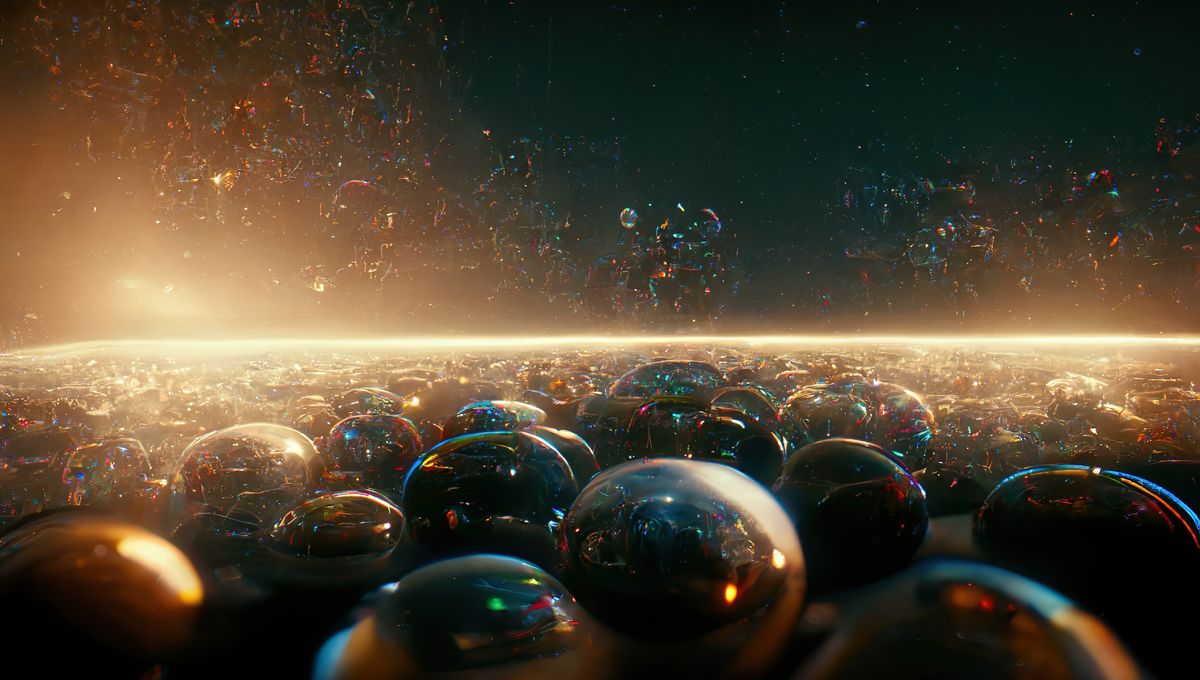
We do not know if there is life elsewhere in the universe. It is likely, given that we are here, that there are other beings out there too. We also do not know if the characteristics of our planet are the best there can be to make life – some might be better. However, a group of astronomers has decided to take this not just a step but a whole leap further and ask: are we in the best possible universe for life? The answer appears to be no.
The team was inspired by the Drake Equation, a formula used to establish the likelihood of intelligent life elsewhere in space. Some of the parameters we can easily measure, others are guesswork and there are different schools of thought. For this new formula, applied to a whole multiverse, the team looked at one specific characteristic: dark energy.
Dark energy is a hypothetical form of energy that is expected to exist in the universe. It explains why the universe is expanding at an accelerated rate. Its inclusion can explain so many of the characteristics we observe, but we have not had direct confirmation of its existence. If it exists, it affects the universe on a large scale and that effect trickles down to star formation, and thus to life.
In our universe, the efficiency of regular matter being converted into stars is around 23 percent. Not a bad number. This is clearly important for life because as far as we can tell, without stars you do not get life. The model shows how this efficiency varies with the abundance of dark energy. For values of dark energy higher than our own universe, the efficiency reaches 27 percent. In those universes, it is easier to make stars and consequently easier to get a life.
“Understanding dark energy and the impact on our Universe is one of the biggest challenges in cosmology and fundamental physics,” lead researcher Dr Daniele Sorini from Durham University’s Institute for Computational Cosmology said in a statement.
“The parameters that govern our Universe, including the density of dark energy, could explain our own existence. Surprisingly, though, we found that even a significantly higher dark energy density would still be compatible with life, suggesting we may not live in the most likely of universes.”
The team looked at a range of universes from those without dark energy to those with 100,000 times more dark energy than ours. They calculated the probability of a universe creating an observer (i.e. intelligent life) under this assumption: the more stars you have the more likely you have intelligent life.
Based on their data, there are universes where it is more likely to have observers. Still, the researchers comment in the paper on how striking it is that our own value of dark energy is so close to the one that maximizes cosmic star formation efficiency. The model is intriguing and the team is keen to play with it some more.
“It will be exciting to employ the model to explore the emergence of life across different universes and see whether some fundamental questions we ask ourselves about our own Universe must be reinterpreted,” Professor Lucas Lombriser, from Université de Genève and co-author of the study, added.
A paper describing the model is published in Monthly Notices of the Royal Astronomical Society.
Source Link: Our Universe Is Not The Most Likely To Form Intelligent Life, New Formula Hints